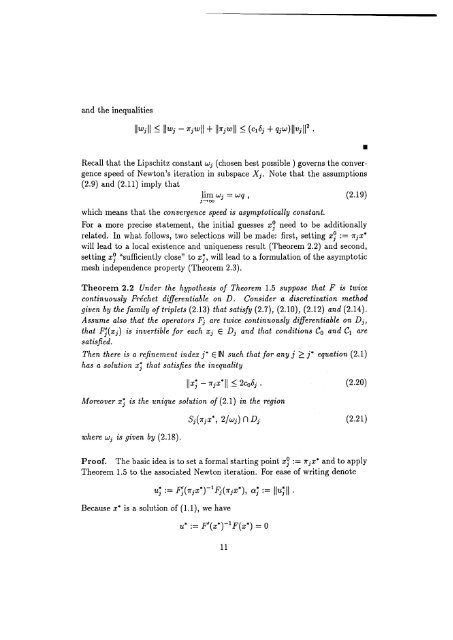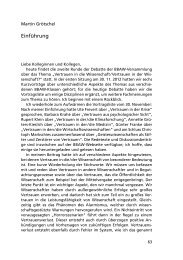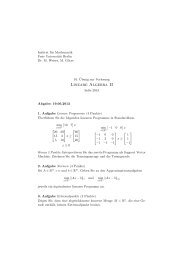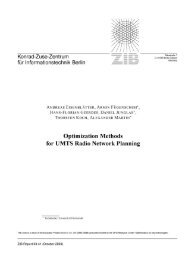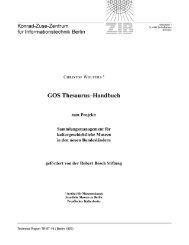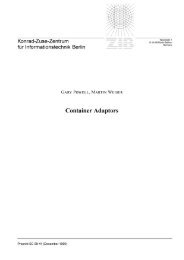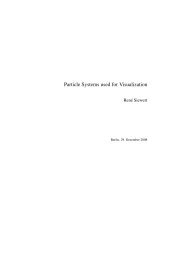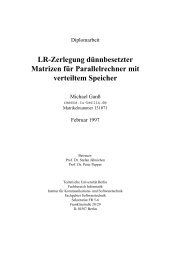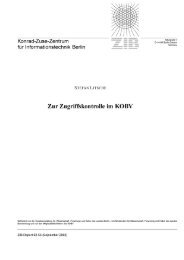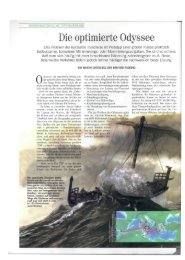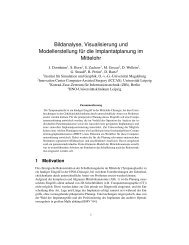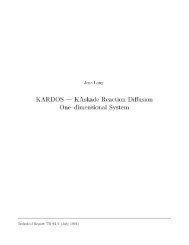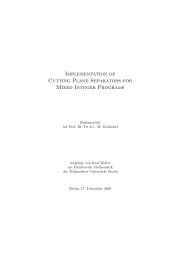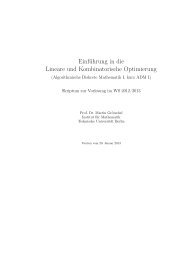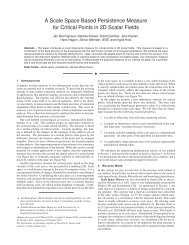SC-90-09.pdf - ZIB
SC-90-09.pdf - ZIB
SC-90-09.pdf - ZIB
You also want an ePaper? Increase the reach of your titles
YUMPU automatically turns print PDFs into web optimized ePapers that Google loves.
and the inequalities<br />
IKII ^ IK - *-;«>l + \\*M\ < M + ?; w )KII 2 •<br />
Recall that the Lipschitz constant tu,- (chosen best possible ) governs the convergence<br />
speed of Newton's iteration in subspace Xj. Note that the assumptions<br />
(2.9) and (2.11) imply that<br />
lim ujj = uiq , (2.19)<br />
j-+oo<br />
which means that the convergence speed is asymptotically constant.<br />
For a more precise statement, the initial guesses x° need to be additionally<br />
related. In what follows, two selections will be made: first, setting x® := TTJX*<br />
will lead to a local existence and uniqueness result (Theorem 2.2) and second,<br />
setting x°j "sufficiently close" to x*j, will lead to a formulation of the asymptotic<br />
mesh independence property (Theorem 2.3).<br />
Theorem 2.2 Under the hypothesis of Theorem 1.5 suppose that F is twice<br />
continuously Frechet differentiable on D. Consider a discretization method<br />
given by the family of triplets (2.13) that satisfy (2.7), (2.10), (2.12) and (2.14).<br />
Assume also that the operators Fj are twice continuously differentiable on Dj,<br />
that F'j(xj) is invertible for each Xj € Dj and that conditions Co and C\ are<br />
satisfied.<br />
Then there is a refinement index j* € IN such that for any j > j* equation (2.1)<br />
has a solution x*j that satisfies the inequality<br />
\\x* j -ir j x*\\


